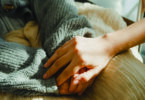Do you know what steps to take to prevent a fire? Would you know what to do if a fire started in your home?
We spoke with former burn patients Fangshu Yu and Shintaro Tsukamoto. They have never met, but their stories are eerily similar. Both were in second-year university, living in off-campus housing, when they were seriously injured in house fires. They each only narrowly escaped, leaving both with extensive burns that required skin grafts.
Fangshu and Shintaro were both treated at Sunnybrook’s Ross Tilley Burn Centre, and now want to share their stories to help others avoid ending up in similar situations.
1) Look
Look for potential fire hazards around your home. According to the Ontario Office of the Fire Marshal, there are a few things you can do, including:
- Always stay in the kitchen while cooking. If you must leave, turn off the stove.
- Encourage smokers to smoke outside. Always extinguish cigarettes in large, deep ashtrays that cannot be knocked over.
- Check electrical cords for damage such as fraying or nicks. A damaged cord can expose wires and result in a potential shock or fire hazard.
Simple activities like smoking and cooking can become deadly if you fall asleep. Dropping a lit cigarette onto the carpet or leaving a stove unattended can ignite a fire very quickly. Use good judgement, particularly if alcohol or other substances are involved.
2) Listen
Listen for the smoke alarms in an emergency. Make sure there are working smoke detectors in your home and test them regularly. Confirm that everyone knows the sound of the smoke alarms and can hear them in an emergency. There is no time to spare in a fire – early detection gives you the extra seconds you need to get out safely.
Not being able to hear the smoke detectors when the fire started was a factor in both Fangshu’s and Shintaro’s experiences – and in Shintaro’s case, there were no working smoke detectors at all.
“Working smoke detectors are so important. If they had been working in my house, maybe I would’ve had more time to get out,” Shintaro says.
Fangshu’s home did have smoke detectors, “but by the time I heard them going off, the smoke was so black and thick that I couldn’t see anything. When I opened my bedroom door, smoke just came pouring in,” she says.

Fangshu Yu, left, and Shintaro Tsukamoto were both injured in fires in their off-campus rental homes.
3) Learn
Learn two ways out of every room. Practice a home fire escape plan with everyone in your home before a fire starts so you and your family can get out quickly.
Fangshu and Shintaro each had only one way out of their homes because they were unable to escape through the windows; Fangshu’s didn’t open far enough, while Shintaro’s basement window was too small to fit through. Both were forced to leave their rooms and navigate dangerous, smoke-filled hallways and staircases in order to escape.
“If the window opened further, maybe things would have turned out differently,” says Fangshu. She received extensive burns to her arms and hands as she crawled along the floor to escape through the front door.
“Basements are not an ideal place to live, because many of them don’t have direct exits. Make sure there’s a way for you to safely escape in the event of a fire,” says Shintaro, who passed out from smoke inhalation while trying to unlock the back door after escaping from his basement bedroom.
He eventually regained consciousness and got out of the house, but the extreme heat generated by the fire caused thermal burns to Shintaro’s hands, arms, neck and face while he was unconscious. The smoke Shintaro inhaled during the fire also damaged his lungs, meaning he was intubated and unable to speak for weeks.
4) Get out and stay out
When smoke alarms sound in an emergency, get out immediately and call 9-1-1 from outside. Never re-enter a burning building.
“It was probably a minute from the time I heard the smoke detector until I got out of the house,” Fangshu says. “Another minute after that, I could see the whole main floor in flames.”
If you do get a burn, the best initial treatment is cold water. If it’s a significant burn, call 9-1-1 and get to the nearest hospital. Do not attempt to use homemade remedies on the burn, such as butter, vinegar, oil or lemon.








